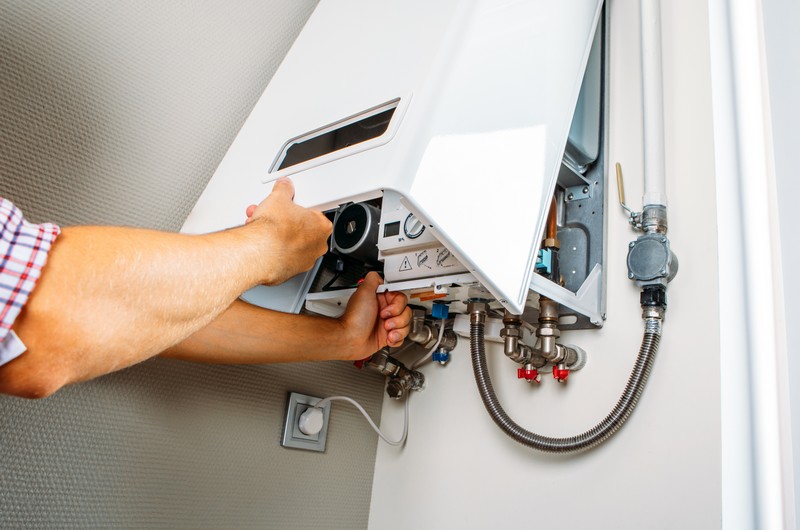 Expert Tips to Reduce Your Gas Bills Now
Expert Tips to Reduce Your Gas Bills Now

Do you want to reduce your energy bills without sacrificing comfort and convenience? Gas bills can be a huge expense, but with the right advice, you can save money while still enjoying all the benefits of gas. In this article, we’ll provide expert tips to help you lower your gas bill now.
We’ll cover an overview of gas bills, ways to lower gas usage, opportunities to save money through gas companies, strategies for taking advantage of seasonal changes in rates, and how to know if you’re getting the best deal. So read on and start saving on your energy bills today!
Section 1: An Overview of Your Gas Bill
Gas bills can be a complicated subject to understand, but knowing the basics of how they work will help you save big on your energy costs. In this section, we’ll take a look at the components of a gas bill, how to read it, and what affects the amount of your gas bill. We’ll also discuss any discounts or special offers that may be available, as well as the different billing methods for gas usage.
Gas bills consist of several components: supply charges, taxes and fees, and usage charges. The supply charge is a flat fee charged monthly or quarterly by your local utility company for providing natural gas service to your home. Taxes and fees are applied by local governments to cover infrastructure improvements or other services related to natural gas delivery in addition to general sales taxes. Lastly, usage charges depend on how much natural gas you use each month; these are measured in therms or ccf (hundred cubic feet).
To get an accurate reading of your bill each month, you’ll need to know how to read it correctly. Your bill should list all applicable charges for that period along with any credits applied to your account from prior months. Any unpaid balances will also be included on the bill along with information about when payment is due or if there are any late fees associated with late payments. Additionally, some companies offer special programs such as budget billing which allows customers to pay an even amount every month regardless of their actual usage during that period.
It’s important to understand what affects the amount of your gas bill so you can make informed decisions about reducing energy consumption in order to save money. Factors such as weather conditions and indoor temperatures can have an impact on how much natural gas is used; colder temperatures mean higher energy costs while warmer temperatures lead to lower energy bills since less energy needs to be used for heating purposes. Other factors include whether you’re using appliances such as stoves or dryers which use natural gas rather than electricity and whether you’re taking advantage of any discounts offered by utility companies for low-income households or those who use renewable energy sources like solar power instead of natural gas for heating purposes.
Lastly, there may be applicable discounts or special offers on your gas bill depending on where you live and what type of customer you are – these could include free installation fees if you switch providers or discounts if you pay your bills early or sign up for automatic payments through bank drafts and credit cards. Additionally, some utility companies offer seasonal rate changes which could result in larger savings depending on when certain activities occur (e.g., running air conditioners during summer months may cost more than running heaters during winter months). It’s important that you stay up-to-date on these types of offers so that you can take full advantage when they become available!
When it comes time to pay your monthly/quarterly/yearly bill from the utility company, it’s important that you know about all the different billing methods available for paying off this debt – some companies allow customers to pay via check by mail while others provide online payment options through websites like PayPal or Venmo; still others might offer prepaid debit cards specifically designed for paying off utility bills quickly and easily without worrying about carrying around cash! Knowing all these options ahead of time will ensure that no matter what situation arises, you’ll have a strategy ready-to-go so that paying off that pesky monthly/quarterly/yearly debt becomes easier than ever before!

Section 2: Tips to Lower Your Gas Usage
In this section, we will discuss how to reduce your gas usage and save money on your gas bills. Investing in energy-efficient appliances is a great way to reduce your gas bill. Look for appliances with an Energy Star rating, which indicates they are at least 15% more efficient than the standard model. Additionally, check for any gas system leaks in your home. If you smell a sulfuric odor or hear hissing near any of your pipes, contact a professional plumber as soon as possible to fix the leak and prevent further damage.
Reducing hot water usage is another great way to lower your gas bills. To do this, try installing low-flow shower heads and faucets that use less water without compromising performance. You can also switch out traditional lightbulbs for LED bulbs, which last longer and use less energy. Installing a programmable thermostat is also a great idea; it can be programmed to adjust temperatures based on when you’re home or away from home, reducing energy costs by up to 10%.
Finally, consider switching to alternative energy sources such as solar panels or wind turbines if available in your area. Solar panels are becoming increasingly affordable and can help you generate electricity from the sun instead of relying solely on natural gas or electricity provided by utility companies. By following these expert tips, you can lower your gas bills and reduce your energy consumption.
Section 3: Opportunities to Save Money Through Gas Companies
Gas companies offer numerous opportunities for customers to save money on their gas bills. Customers can take advantage of discounts, sign-up bonuses, cash-back offers, loyalty programs, and special offers from their gas provider. It’s important to shop around and compare rates between different providers in order to find the best deal.
One way to save money is by taking advantage of seasonal changes in rates. During the summer months, when demand for gas is lower than during the winter months, rates tend to be lower. By switching suppliers during these times of year you can potentially get a better rate than you otherwise would have.
Another way to save money is by signing up for a variable rate plan with your provider. With this type of plan, your gas bill will fluctuate depending on the current market conditions – meaning that you are able to adjust your payments according to what is most beneficial for you at any given time. This allows consumers to make sure they’re always getting the best possible deal on their gas bills.
Finally, it’s important that customers know how much they are using and how often they are using it so that they can monitor their usage and make sure they aren’t overspending or wasting energy unnecessarily. Customers should also be aware of any additional fees or taxes associated with their bill as these can add up quickly if not checked closely. By being aware of all the costs associated with your gas bills, you can make sure that you get the most out of every dollar spent on energy consumption!
Section 4: Strategies to Take Advantage of Seasonal Changes in Rates
It is important to be aware of periodic modifications in gas rates. At different points throughout the year, suppliers and regulators may adjust costs based on supply, demand, temperature, and other factors. To capitalize on these variations in prices, it is essential to remain informed of the market and any discounts or incentives that may be available. Here are some suggestions to help you reduce your energy bills:
1. Check Seasonal Rates From Your Supplier or Local Regulator: It’s beneficial to keep track of your supplier’s rate adjustments. Many vendors have a special ‘Seasonal Rate Changes’ page which provides up-to-date information regarding existing and upcoming rates for various times of the year. Additionally, your local regulator might provide data about seasonal rate changes within your locality.
2. Seek Out Discounts, Bonuses, or Other Incentives: As part of their promotional strategies across certain seasons, some gas companies offer discounts or bonuses such as loyalty rewards or cash-back offers that could reduce your bills month-by-month.
Make sure to often check for any special packages that could shave off additional money from your energy consumption over time.
3. Utilize Price Comparison Websites: Price comparison websites are invaluable tools for identifying the cheapest deals on gas close by quickly and easily; they enable users to compare prices from various providers at once so they can make an informed decision based solely on cost – without having to worry about the quality of service or customer satisfaction ratings from individual organizations.
4. Take Advantage of Promotions With Loyalty Programs: Several gas firms offer loyalty programs that can reward customers with bonus points whenever they purchase fuel – allowing them to save money down the line when they use those points towards future purchases with the company.
Furthermore, some loyalty programs also include exclusive promotions or savings during specific periods – consequently signing up if one exists nearby could prove rewarding!
5 Monitor Modifications in The Market: Keeping tabs on seasonally changing gas prices isn’t just a matter of convenience; it’s also necessary if you want to get the most competitive price possible when buying fuel for personal or business needs alike!
Set up alerts via email notifications or RSS feeds so you know when rates shift – this way, you’ll always be ready to take advantage of any opportunities that come along!
By following these tips readers can achieve considerable savings on their energy consumption regardless of season – all while reducing their gas bills even further!
Section 5: How to Know If You’re Getting the Best Deal on Your Gas Bill
Getting the best deal on your gas bills is essential to saving money and reducing energy consumption.
There are several steps you can take to ensure you’re getting the best value for your money.
The first step is to compare your current gas bill to the average for your area. This will give you a good indication of whether you’re paying more or less than other households in your area. You can find this information from local gas companies, utility boards, and consumer protection organizations.
The second step is to check the terms and conditions of your current plan. Make sure that there are no hidden fees or extra charges that could be driving up your bill. Look at things like additional service charges, delivery fees, meter reading fees, and taxes that may not be included in the advertised rate but will still impact how much you pay each month.
Finally, research different plans offered by your local gas company and choose one that fits both your budget and needs while providing maximum value. The key here is to look beyond just the base cost of each plan and consider any discounts or special offers available before making a decision.
Consider things like sign-up bonuses, cash-back offers, loyalty programs, energy efficiency incentives, seasonal rate changes, and more when selecting a plan for yourself.
Monitoring changes in rates over time can also help you get the best deal on your gas bills as these rates can fluctuate considerably from season to season.
By staying informed about rate changes across suppliers and local regulators, you can switch plans as needed so that you always have access to an affordable option with maximum value for money.



